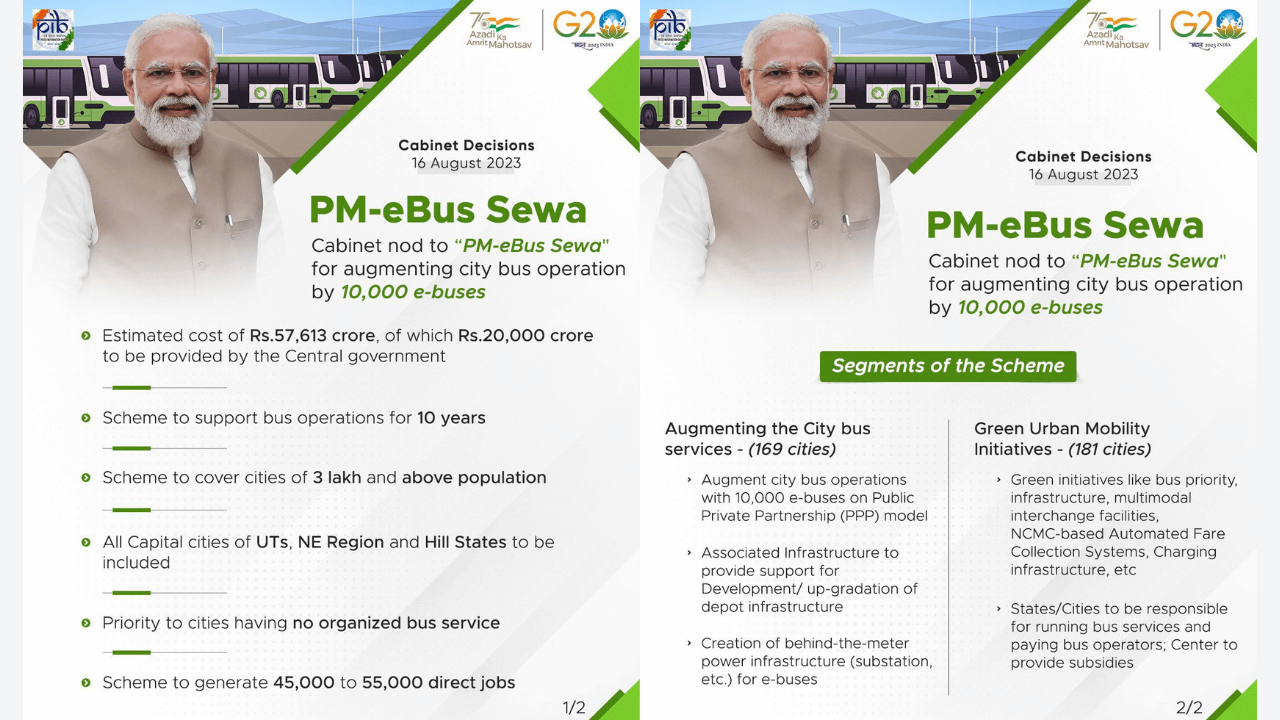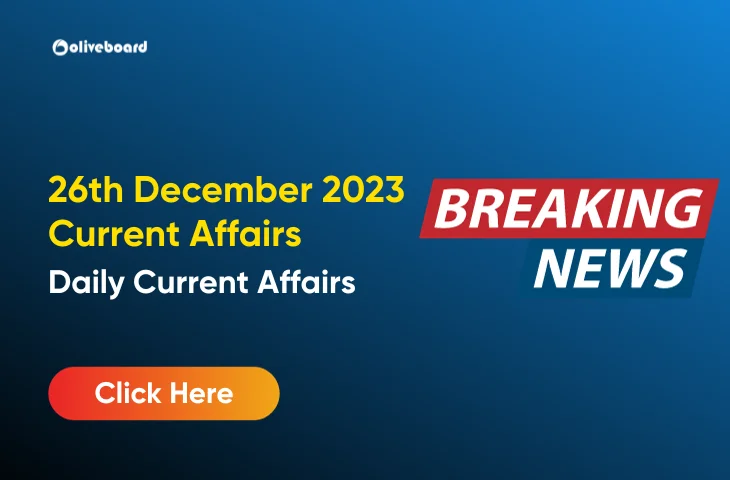The Union Cabinet, led by Prime Minister Shri Narendra Modi, has given its approval to a bus scheme named “PM-eBus Sewa.” This scheme aims to enhance city bus operations through the introduction of 10,000 electric buses, following a Public-Private Partnership (PPP) model.
The Union Cabinet has also given its approval to a new Central Sector Scheme named “PM Vishwakarma.”
More About the “PM-eBus Sewa” Scheme
The “PM-eBus Sewa” scheme is estimated to cost around ₹57,613 crore, with a Central government support of ₹20,000 crore. This initiative will provide assistance for bus operations over a span of 10 years.
Reaching the Unreached
The scheme will encompass cities with a population of three lahks and above, based on the 2011 census. This includes all Union Territory capitals, the North Eastern Region, and hilly states. Priority will be given to cities without organized bus services.
Direct Employment Generation
The implementation of this scheme is projected to create around 45,000 to 55,000 direct jobs, as approximately 10,000 buses are deployed for city bus operations.
Segments of the scheme
The “PM-eBus Sewa” scheme comprises two main segments:
Segment A – Augmenting City Bus Services (169 cities):
- This segment aims to enhance city bus operations by introducing 10,000 e-buses under the Public Private Partnership (PPP) model.
- The scheme will also provide support for developing or upgrading depot infrastructure and establishing power infrastructure (such as substations) for e-buses.
Segment B – Green Urban Mobility Initiatives (GUMI) (181 cities):
- This segment focuses on promoting green initiatives in urban mobility.
- It includes initiatives like prioritizing buses, improving infrastructure, setting up multimodal interchange facilities, implementing NCMC-based Automated Fare Collection Systems, and establishing charging infrastructure for e-buses.
Support for Operation: The responsibility of running the bus services and making payments to bus operators lies with the States/Cities under the scheme. The Central Government will extend its support by offering subsidies as specified in the proposed scheme.
Boost to E-Mobility
- The scheme is designed to boost e-mobility and provide comprehensive assistance for establishing essential power infrastructure.
- It will also facilitate the establishment of charging facilities as part of the Green Urban Mobility Initiatives.
- Furthermore, the support for bus priority infrastructure will not only expedite the adoption of advanced, energy-efficient electric buses but also stimulate innovation within the e-mobility sector and strengthen the electric vehicle supply chain.
- This initiative aims to harness economies of scale by aggregating the procurement of electric buses, contributing to their widespread adoption.
- The transition to electric mobility holds the promise of reducing noise and air pollution while curbing carbon emissions.
- As more people shift to bus-based public transportation, a modal change will occur, leading to a reduction in greenhouse gas emissions.
This comprehensive scheme envisions a greener and more sustainable urban transportation landscape.
- Weekly Current Affairs 2025 PDF For Bank, SSC, UPSC Exams
- Unsung Heroes of India: 10 Unknown Freedom Fighters You Should Know
- 26 December Current Affairs 2023 in English
- Daily Current Affairs 2025, Check Today’s Current Affairs
- April Month Current Affairs 2024, Download PDF
- June Month Current Affairs 2024, Download PDF

Hello, I’m Aditi, the creative mind behind the words at Oliveboard. As a content writer specializing in state-level exams, my mission is to unravel the complexities of exam information, ensuring aspiring candidates find clarity and confidence. Having walked the path of an aspirant myself, I bring a unique perspective to my work, crafting accessible content on Exam Notifications, Admit Cards, and Results.
At Oliveboard, I play a crucial role in empowering candidates throughout their exam journey. My dedication lies in making the seemingly daunting process not only understandable but also rewarding. Join me as I break down barriers in exam preparation, providing timely insights and valuable resources. Let’s navigate the path to success together, one well-informed step at a time.






